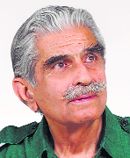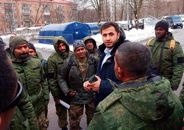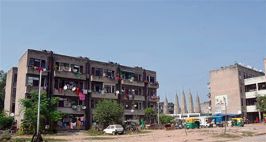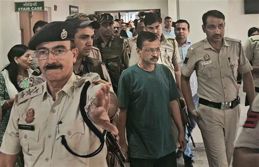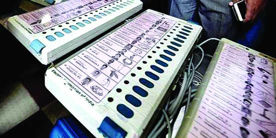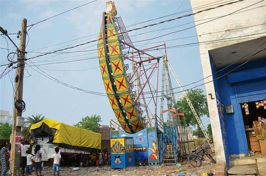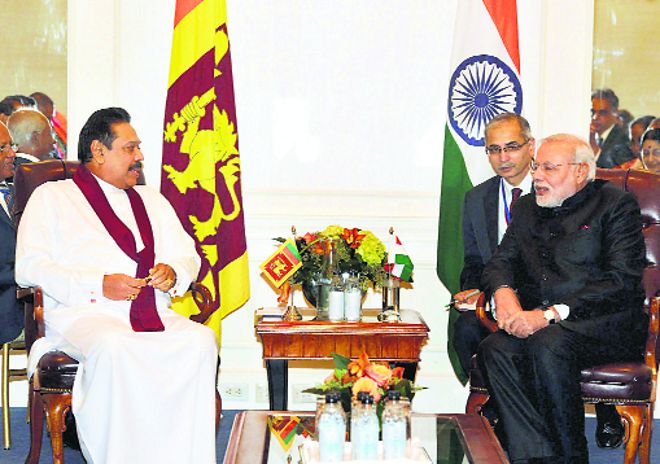
Maj Gen Ashok K Mehta (retd)
Military commentator
PRIME Minister Percy Mahinda Rajapaksa, twice former President, on his first official visit to India beginning today, is letting younger brother and soldier, President Gotabaya Rajapaksa, do all the tough talking, though he will try to iron out the wrinkles it has caused. Gotabaya’s first visit abroad after becoming the President was to India when New Delhi, within hours of his swearing in, despatched Foreign Minister S Jaishankar, an old Sri Lanka hand, to invite him. Mahinda too has chosen New Delhi as his first port of call. Foreign Minister Dinesh Gunawardena also touched base, renewing discussions with South Block on the sticky fishermen issue. National Security Adviser Ajit Doval was in Colombo last month and met both Gotabaya and Mahinda, reaffirming India’s commitment towards Sri Lanka’s security, focussing on counter terrorism and intelligence sharing. None of the Sri Lankan leaders has visited either China or Pakistan yet, though their foreign ministers have called on Gunawardena. Such India First policy in an exchange of bilateral visits is unprecedented.
Before and during his first presidential visit, Gotabaya said India is Sri Lanka’s closest neighbour and a long-standing friend and Colombo will do nothing to harm India’s security interests. At the joint press conference, Prime Minister Narendra Modi said he was confident Colombo will carry forward the process of reconciliation to fulfil the aspirations of Tamils for equality, justice, peace and respect — a clear reference to the implementation of the 13th Amendment which was a byproduct of the Indo-Sri Lanka accord of 1987 and the post-war reconciliation process started in earnest by the previous regime, but making little substantial progress due to domestic political resistance.
So what has Gotabaya been saying and doing that has ruffled feathers at home and abroad? On Tuesday, during Sri Lanka’s 72nd Independence Day, for the first time since 2016, singing the national anthem in Tamil, which is a national language, was dropped. Gotabaya told Sri Lankans that as the elected leader — he was voted into power by the Sinhalese — he must serve all, even those who did not vote for him. He added that he did envisage public officials, lawmakers and judiciary not to impede his commitment to fulfilling the needs of the people. In the recent past, he has spoken about the constitutional and electoral reforms for a strong executive and legislature through removal of 19th Amendment (limits President to two terms and curbs his powers) and 15th Amendment (undermines electability of small and regional parties).
Gotabaya’s most striking stated intention though is to substitute the devolution of power in the Tamil majority north-east with development claiming full devolution could not be implemented against the feelings and wishes of a majority of the Sinhalese. The plan apparently seeks ultimately the abolition of the Provincial Council system of asymmetric devolution. For the first time, there is no Tamil/Muslim minister in the government. Further, Gotabaya had said that his government would walk out of the United Nations Human Rights Council Resolution 30/1 of 2015, co-sponsored with the US on post-war transitional justice and accountability; and release of all military personnel in jail on account of human rights violations. Some deft backtracking on the UN resolution has occurred. The International Crisis Group, in its latest report, has listed Sri Lanka on the watchlist of six countries at risk of conflict and escalation of violence in 2020 and has recommended to the European Union, deterrent measures, including withdrawal of Generalised System of Preferences (GSP) Plus benefits from Sri Lanka due to its failure to comply with its commitments on reconciliation. The UN has already curtailed Sri Lanka’s international peace-keeping slots which is a big blow to the morale of the soldiers.
Big brother Mahinda will have a tough job explaining and justifying Gotabaya’s actions and other majoritarian ideas in the pipeline, especially putting on hold full implementation of 13-A — amendment that led to the creation of provincial councils and made Tamil and Sinhala the official language — and the process of reconciliation. It was Mahinda himself who, after defeating the LTTE, had mooted the idea of replacing devolution with development in the north-east. Only after India’s persistent pressing did he renege and at least thrice thereafter, promised full implementation of 13-A and beyond — an Upper House added to the legislatures in the north- east. A mellowed Mahinda will be amenable to consider reversing the pause on reconciliation over which the establishment is already doing a rethink. In order to implement constitutional amendments, a two-thirds majority is essential. This cannot be achieved by the Rajapaksas without the support of the minority Tamil and Muslim parties. This and India prodding will sooner than later restore development with devolution in tandem and not exclusionary as advocated by the President.
China’s shadow is visible everywhere in Sri Lanka, especially in the south. In their decade-long earlier stints in government, Beijing was Rajapaksa’s favourite partner in economic development, ranging from the construction of highways, ports, airports and hotels — you name it and the Chinese companies were embedded there. Inaugurating the 269-hectare mega port city in Colombo last month, while Mahinda declared it as a future financial hub, he rubbished the China debt trap theory. The chief family strategist and a former minister, Basil Rajapaksa, has neatly apportioned the political and economic security of Sri Lanka to India and China, respectively. The Economic and Technical Cooperation Agreement — which New Delhi has sought, is unlikely to get a push from Mahinda.
The stunning return of the Rajapaksa clan is the new strategic reality in Sri Lanka. The Rajapaksas want a new beginning in their relations with India after a period of what they call ‘misunderstanding’. While the Rajapaksa brothers play ‘good cop, bad cop’, they recognise the new India, letting Mahinda, the politician, be in the driver’s seat.
Join Whatsapp Channel of The Tribune for latest updates.






